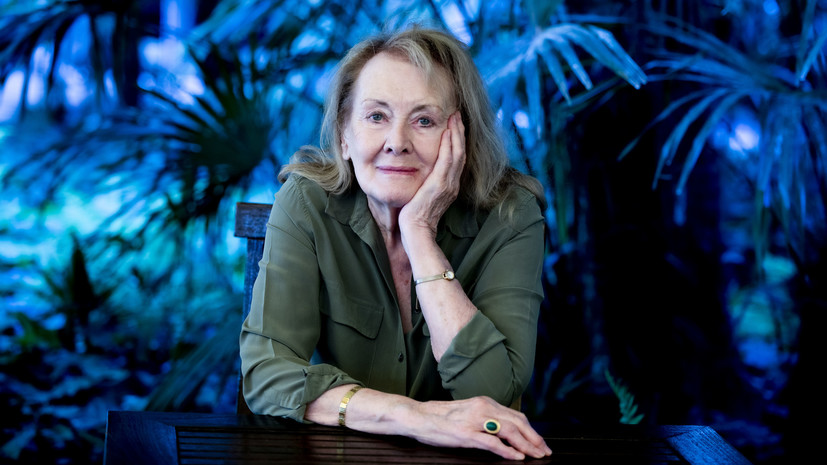On Thursday, October 6, the winner of the Nobel Prize in Literature was announced in Stockholm.
They became the French writer Annie Ernault.
She received the award "for the courage and clinical precision with which she uncovers the origins, aloofness, and collective limitations of personal memory."
Erno was born on September 1, 1940 in Lillebonne.
Her first novel was published in 1974.
Most of the writer's works are devoted to her own life and experience.
In total, Annie Erno has published more than 20 books.
Among the favorites of this year's award, bookmakers called the French writer and poet Michel Houellebecq, who in his books questioned the liberal actions and achievements of Western society, in particular, criticized the sexual revolution that led to a social crisis.
Another favorite of the award was the author of the scandalous "Shaitan Ayats" (1988), British writer of Indian origin Salman Rushdie.
The "verses" caused outrage among Muslims, and the Iranian Ayatollah Khomeini publicly cursed the author in his fatwa, and also sentenced him to death, calling on the faithful of the whole world to carry out the sentence.
In his work, the writer raises issues of migration and the complexity of adapting cultures, the fragmentation of the Muslim world.
In August 2022, an assassination attempt was made on Rushdie in New York, which landed him in the hospital.
Among the other most likely candidates for the prestigious award, bookmakers also named Stephen King, Haruki Murakami, Michel Houellebecq, Ngugi Wa Thiongo, Gariel Lutz, Pierre Michon, Robert Coover and Ann Carson.
The chances of the Russian writer Lyudmila Ulitskaya were estimated rather modestly.
Tanzanian writer Abdulrazak Gurna won the Nobel Prize in Literature last year.
The prize was given to him for his "uncompromising and compassionate exploration of the consequences of colonialism and the fate of refugees in a maelstrom of cultures and continents."
The Nobel Prize in Literature, according to the will of the founder, is awarded to the author who "created the most significant work of an idealistic orientation."
The decision to award the prize is made by the Swedish Academy in Stockholm, which consists of 18 people.
The preparation is carried out by the corresponding committee on literature, which includes members of the Academy and independent experts.
The nomination process runs from September to 31 January.
In the spring, the committee draws up a list of the most worthy writers - on average, about 15-20 people.
Subsequently, this number is reduced to five candidates, and the winner is determined by the members of the Academy by voting.
During the existence of the Nobel Prize in Literature, 118 writers have become its laureates, of which five are Russian.
In 1933, "for the strict skill with which he develops the traditions of Russian classical prose" Ivan Bunin was awarded the award.
In 1958 - Boris Pasternak "for outstanding services in modern lyric poetry and in the field of great Russian prose."
However, Pasternak was forced to refuse the prize, and the medal and diploma were awarded to his son Yevgeny in 1989.
Mikhail Sholokhov won the Nobel Prize in Literature in 1965 for his work The Quiet Flows the Don - the Academy noted the author and the novel "for the artistic power and integrity of the epic about the Don Cossacks at a turning point for Russia."
In 1970, "for the moral strength with which he followed the immutable traditions of Russian literature" was awarded to Alexander Solzhenitsyn,
The vast majority of awards were received by prose writers (about 80), poets were in second position - more than 30, playwrights collected about a dozen awards, historians and philosophers - a few.
The 2016 Literature Prize went to the musician Bob Dylan "for creating new poetic expressions in the great American song tradition."

